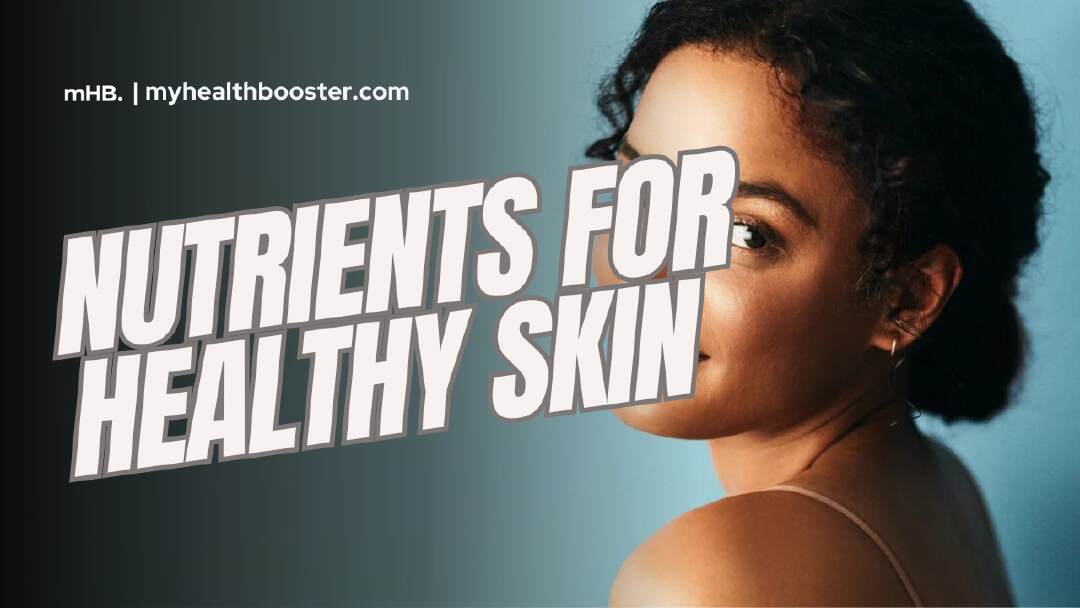Introduction
Your skin, the body’s natural shield, requires a symphony of nutrients to maintain its health and vitality. By nourishing your skin from within, you can achieve that coveted glow and fortify its ability to protect against external elements. Let’s delve into the essential nutrients that contribute to the well-being of your skin.
1. Healthy Fats: The Elixir of Radiance
Your skin’s radiance is intricately linked to the presence of healthy fats. Insufficient fat intake can lead to dry, wrinkled skin. Prioritize monounsaturated and polyunsaturated fats found in nuts, seeds, avocados, and fish. These fats foster skin moisture, firmness, and flexibility while promoting heart health.
Omega-3 fatty acids, a subset of polyunsaturated fats, play a vital role in building cell walls, combating skin cancer development, and reducing inflammation.
2. Protein: Building Blocks of Skin Structure
Proteins are the building blocks that your body transforms into amino acids, essential for creating collagen and keratin, the foundational proteins in skin structure. Amino acids also contribute to the shedding of old skin. Certain amino acids function as antioxidants, safeguarding skin cells from UV rays and free radicals.
3. Vitamin A: Guardian Against Sun Damage
Vitamin A is indispensable for both layers of the skin, actively preventing sun damage by interrupting collagen breakdown. As an antioxidant, it provides some defense against sunburn and aids in the healing of cuts and scrapes. Insufficient vitamin A can manifest as dry, itchy, or bumpy skin.
4. Vitamin C: Collagen’s Ally
Vitamin C is synonymous with collagen support, helping this protein maintain its structure. It acts as a potent antioxidant, protecting against free radicals and potentially reducing the risk of skin cancer. Low vitamin C levels can result in easy bruising, bleeding gums, and delayed wound healing.
5. Vitamin E: Defender Against UV Damage
Functioning as an antioxidant and anti-inflammatory, vitamin E absorbs energy from UV light, preventing skin damage that leads to wrinkles and sagging. It collaborates with vitamin C to fortify cell walls.
6. Zinc: Healing Agent and Cell Stabilizer
Abundant in the outer skin layer, zinc aids in the healing process after an injury, maintains cell wall stability, and supports cell division and specialization. It may act as an antioxidant and protect the skin from UV damage.
7. Selenium: Guardian Against UV Rays
Selenium, a vital mineral, enhances the protective effects of antioxidants against UV rays. Deficiency is linked to an increased risk of skin cancer.
Foods and Supplements
Embrace a diet rich in fruits and vegetables, which offer a spectrum of skin-friendly vitamins and antioxidants. Some foods are nutrient powerhouses, providing multiple skin-enhancing elements:
- Fatty Fish (salmon, sardines, tuna): Protein, omega-3s, selenium
- Leafy Dark Greens (kale, spinach, collards): Vitamins A, C, and E; omega-3s; protein; and selenium in spinach
- Eggs: Protein, vitamins A and E, selenium, zinc
- Flaxseeds: Omega-3s, selenium
- Legumes (lentils, chickpeas): Protein, zinc
- Avocados: Healthy fats, vitamins C and E
- Extra Virgin Olive Oil: Healthy fats, vitamin E
Conclusion
Unlocking the secret to radiant skin lies in nurturing it with the right nutrients. A balanced diet featuring these skin-loving elements can contribute to your skin’s health, resilience, and timeless allure. Should you have concerns about meeting these nutrient needs, consult your healthcare provider to explore supplement options while ensuring overall well-being.
